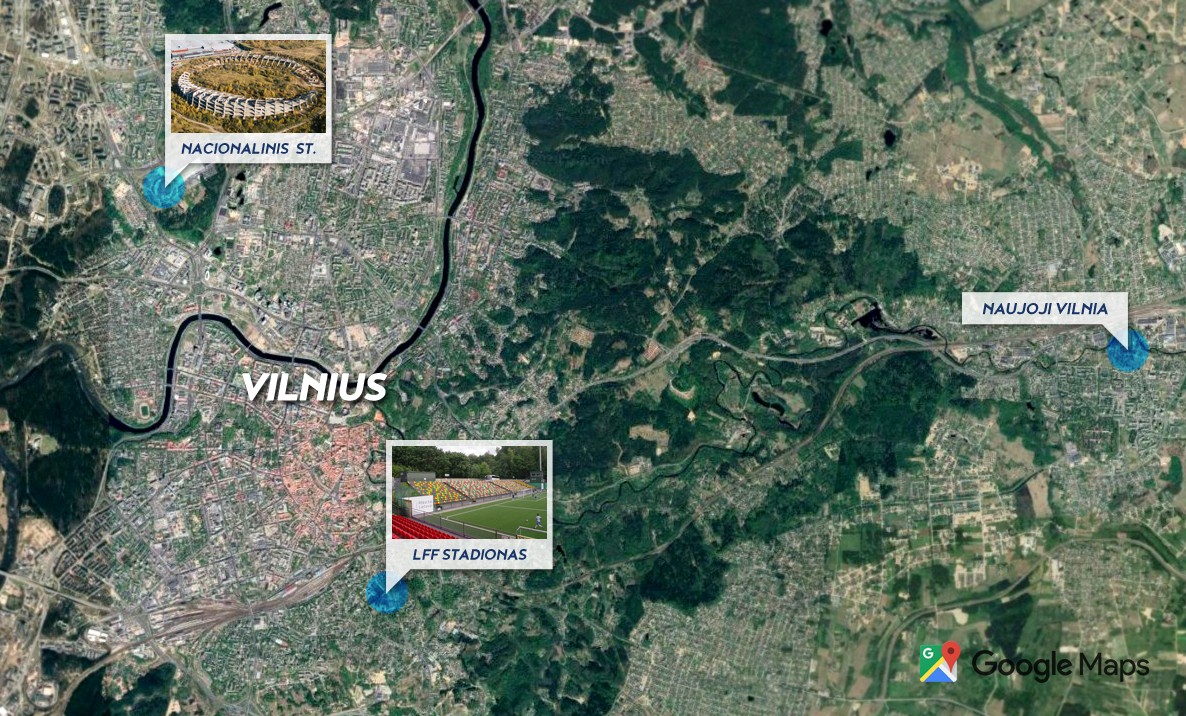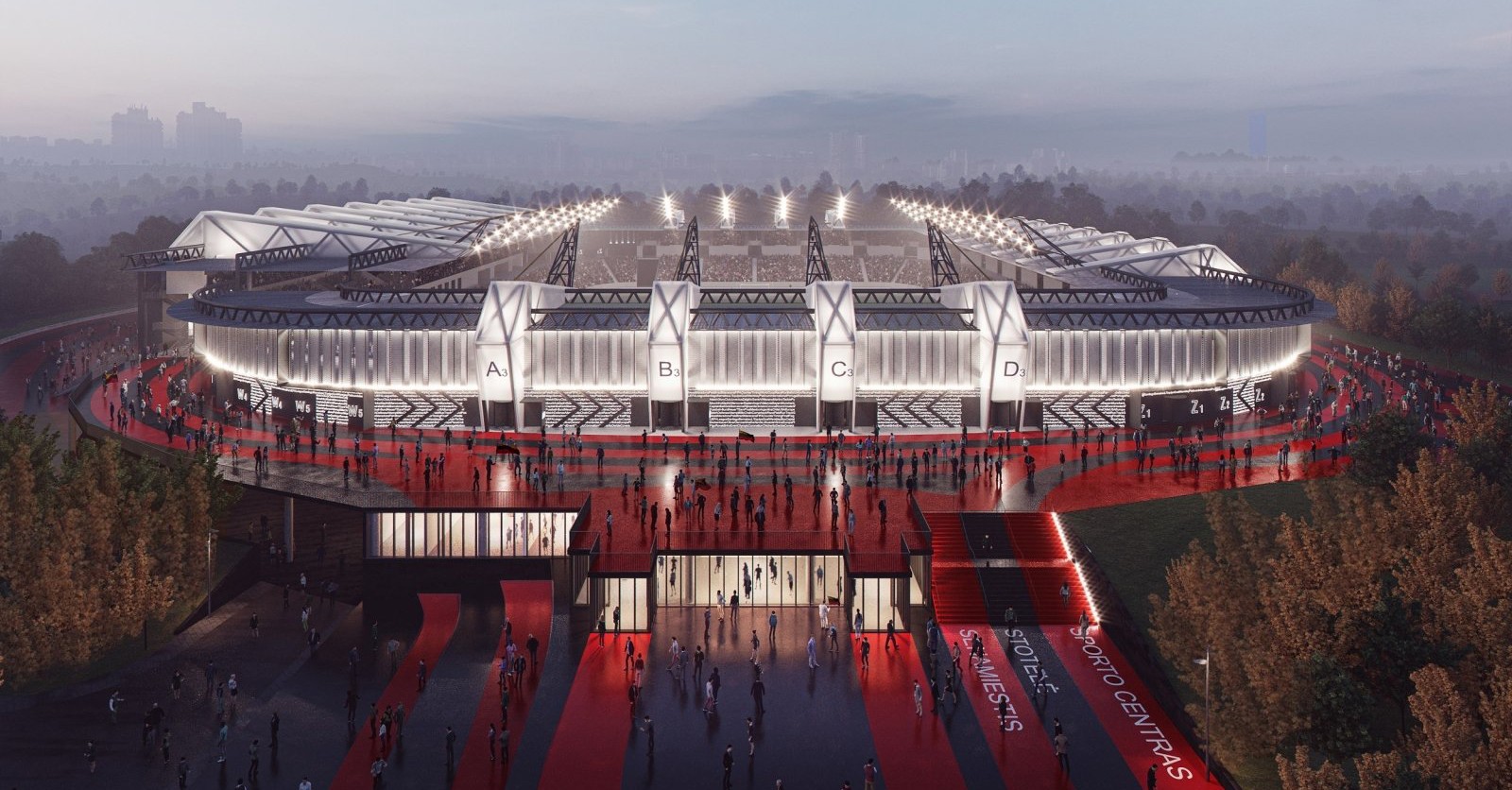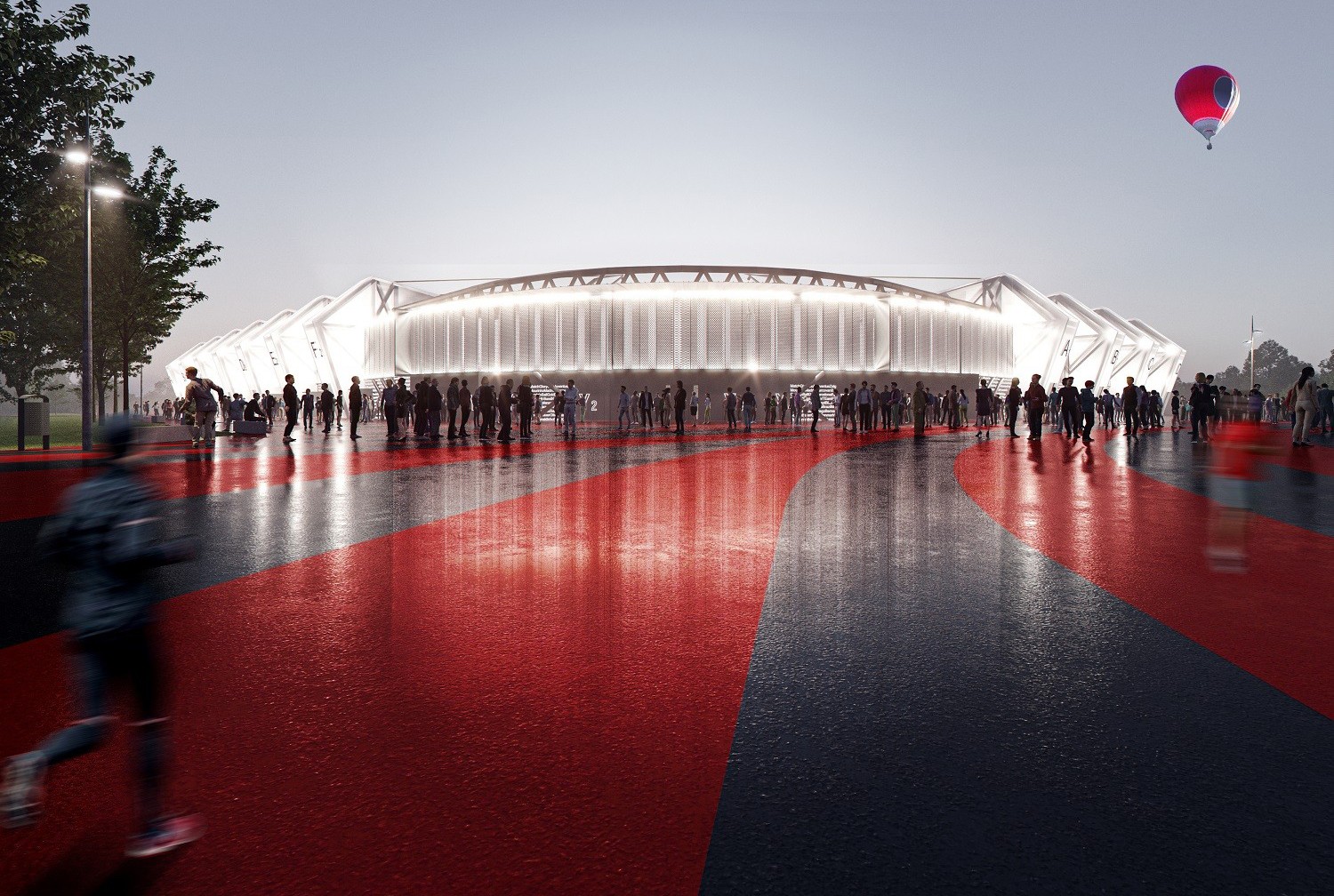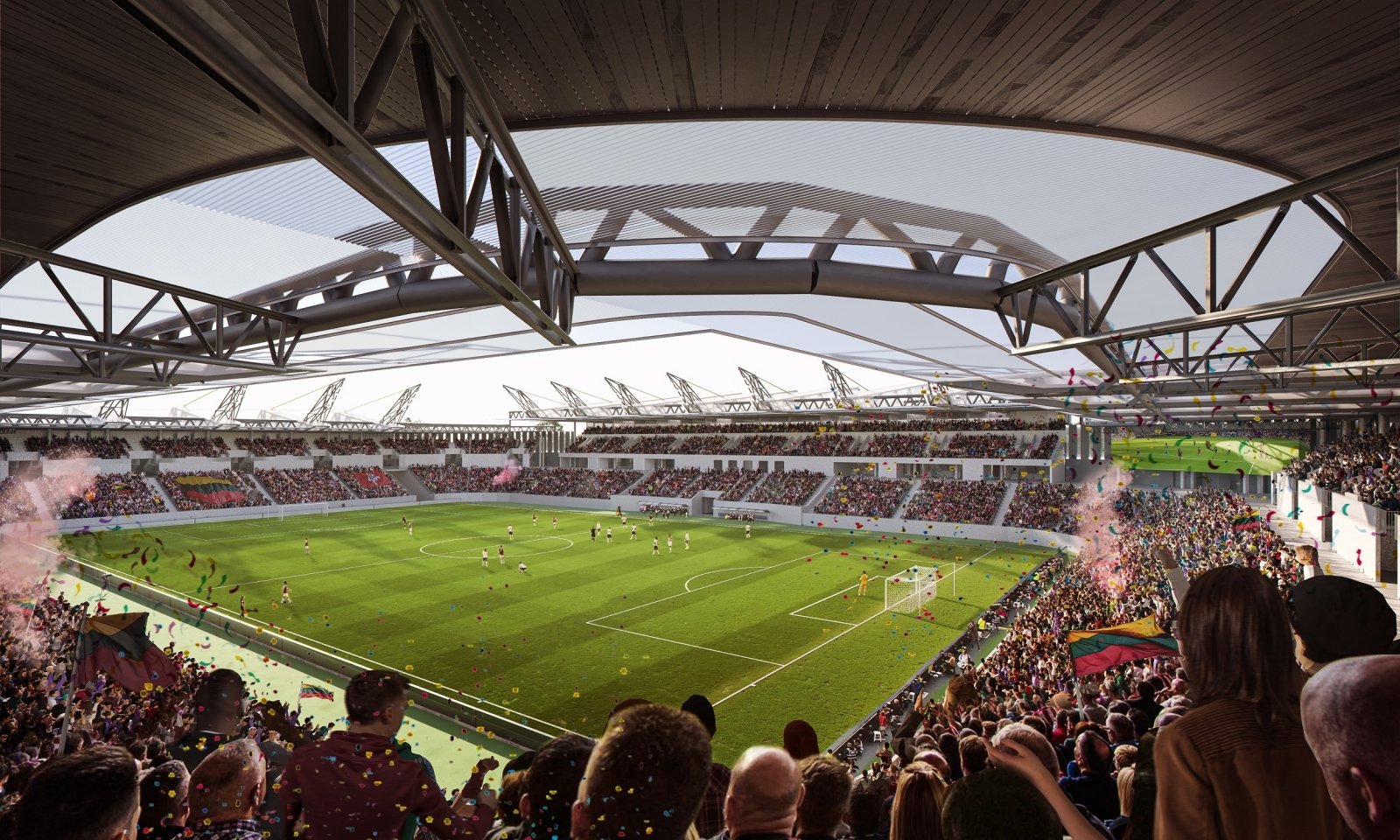Vilnius: Lithuania's national stadium dead again
source: StadiumDB.com; author: michał
 Three years of work and once more it's back to the drawing board in Vilnius. The public procurement office has killed the new national stadium project. It's not our phrasing, it's the Vilnius mayor's.
Three years of work and once more it's back to the drawing board in Vilnius. The public procurement office has killed the new national stadium project. It's not our phrasing, it's the Vilnius mayor's.
Advertisement
There's a number of reasons why the national stadium plan for Vilnius has been a mockery for so many years. After all, the project saw groundbreaking in 1987. Not only hasn't it been finished, it looks like a place out of post-apocalyptic horror movies. And we're talking of a very attractive piece of land in the north of a European capital, after all.
The story is so weird that one of major media outlets in Lithuania, lrytas.lt, has asked a 'bioenergetic specialist' where the curse of this project may lie.
What went wrong this time?
The latest dose of bitter humour came after the current (or, should we say, most recent) procedure ended with nothing, having consumed 3 years of work. The plan was to demolish the bare structure and erect a 15,000-all-seater football stadium in a public-private partnership.
The procedure went on through nearly all phases. The winning consortium and design were selected, mixed-source funding established and finally, in late 2019, the city council voted to approve the agreement and allow it to be signed.
Except that in March of this year the Public Procurement Office (VPT) ruled the proposed deal should be terminated. The city appealed against the decision but court in Vilnius upheld it.
The primary concern was what would happen to the stadium after it's complete. According to the plan, the winning consortium would also get a concession to operate the stadium for 25 years, during which the operation would be subsidised. VPT expressed the opinion that nearly all of the associated risk has been shifted onto taxpayers, while it should be split between the concessionaire and public authorities.
Additional doubts were raised regarding the increase in cost. Back in 2017 the project was estimated to cost under €80 million, while in 2019 it rose to €93.2 million. Along with subsidies it would accummulate to €156 million, which is a very steep price for a 15,000-seater, even over 27 years, from construction to handover.
What now?
Many harsh words were said over the past week, mostly by the mayor of Vilnius Remigijus Šimašius, who felt the government wanted to 'kill' the project. But today the atmosphere is much better. The municipality has given its comment to the court's ruling and VPT arguments. Their hope is that the project could be saved, albeit with alterations and corrections in the deal.
Obviously, both the mayor of Vilnius and the central government are assuring the nation that they want a modern national stadium. However, it seems their visions may be significantly different.
Chancellor for the government, Algirdas Stončaitis, suggests the entire principle behind the scheme should be reassessed. The stadium doesn't have to be built on the 33-year-old ruins, Stončaitis gave two alternatives: expansion of LFF Stadionas and construction in Naujoji Vilnia, a suburban area east of the city.
The chancellor is also questioning whether 15,000 seats is the right capacity for a football-only arena. He argues there's a 15,000-seater being built in Kaunas, so perhaps a smaller football stadium would be in order, of course as long as it meets UEFA Category 4 criteria.

Advertisement
 StadiumDB
StadiumDB ©
©  ©
©  ©
©